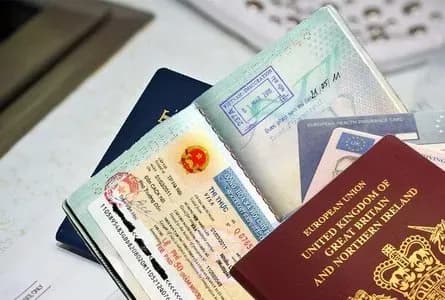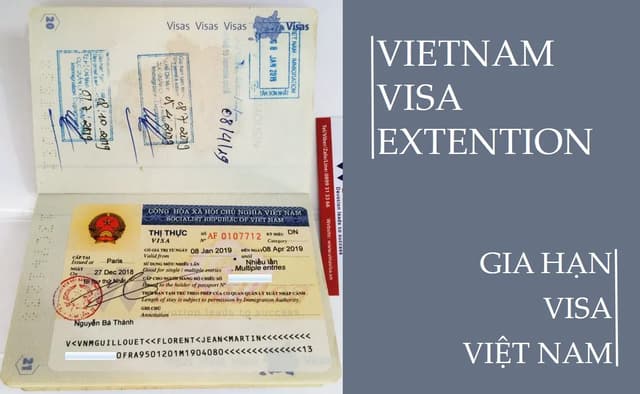Notes when establishing a joint stock company for the first time under new regulations
By Hoa Nguyen
05/12/2024
Establishing a joint stock company for the first time requires careful preparation and compliance with the latest legal regulations. This article will provide important notes to help businesses follow the correct procedures, from preparing documents to registering a business, ensuring a smooth and legal start.

1. Things to know about joint stock companies under current law
To understand the basics of joint stock companies, we first need to consider the regulations from the perspective of the latest civil and corporate law.
According to Article 111 of the Enterprise Law 2020, a joint stock company is a type of enterprise in which:
- Charter capital is divided into equal parts called shares;
- Shareholders are individuals or organizations that own shares. A joint stock company must have at least 3 shareholders and there is no limit on the maximum number. Shareholders are only responsible for the debts and other financial obligations of the enterprise within the scope of the capital contributed to the enterprise;
- The profit that shareholders receive from owning shares is dividends;
- Joint stock companies can raise capital by issuing shares.
However, not every 3 people who contribute capital (money, assets...) to operate and share profits can immediately form a business. Specifically, according to Article 74 of the 2015 Civil Code, an organization is considered to have operating capacity if it meets the following conditions:
- As an economic organization;
- Have own name, assets, stable transaction headquarters;
- Registered business in accordance with the law to carry out business activities.
The time when a joint stock company officially has legal status and can operate legally is after being granted a Certificate of Business Registration.
See also: Procedures for establishing a joint stock company: Documents and fees?
2. 6 notes when establishing a joint stock company
2.1 Number of shareholders
According to Point b Clause 1 Article 111 of the Enterprise Law 2020, to establish a joint stock company, there must be at least 3 shareholders and there is no limit to the number of shareholders allowed to contribute capital.
In addition, shareholders in a joint stock company can be individuals or organizations, except for the following cases under Article 17 of the 2020 Enterprise Law:
- State agencies, armed forces units; cadres, civil servants, public employees;
- Leaders and managers in state-owned enterprises, except for those appointed as representatives to manage the State's capital contribution in the enterprise;
- Officers, non-commissioned officers, professional soldiers, workers, defense officials in agencies and units of the People's Army... (except those appointed as authorized representatives to manage the State's capital contribution in enterprises or to manage state-owned enterprises);
- Minors; persons with limited civil capacity; persons who have lost civil capacity;
- People who are being prosecuted for criminal liability, detained, serving a prison sentence, serving an administrative measure at a compulsory drug rehabilitation facility, a compulsory education facility, or are prohibited by the Court from holding a position, practicing a profession, or doing certain work;
- Organizations without legal status; Organizations that are commercial legal entities are prohibited from doing business and operating in certain fields according to the provisions of the Penal Code.
2.2 Industry and business
- Enterprises are not limited in number, scale, or registered business lines, but must identify their main business lines (Basis: Article 7 of the 2020 Enterprise Law).
In fact, when establishing a company, people often tend to register multiple industry codes to avoid having to complete additional business registration procedures during operation. However, if you register indiscriminately, it can cause unnecessary difficulties, wasting time and effort when completing business registration procedures.
For example: A business registers to provide security services (not its main business) with a charter capital of 10 billion. However, this is a conditional business requiring a minimum legal capital of 1 million USD (about 23 billion VND), so the application for establishing this business will certainly not be approved. The business will spend unnecessary time to revise and resubmit the application.
- Before preparing the documents, enterprises can refer to Decision 27/2018/QD-TTg on the Vietnamese Economic Sector System to make a list of industries they plan to register to operate. In addition to the industry name, enterprises need to pay attention to the level four industry code.
If you want to be more detailed than the fourth-level industry code, the company should choose an industry first and then write detailed information right below the fourth-level industry, but need to ensure that the detailed business line is consistent with the chosen fourth-level industry. For example:
STT | Industry name | Industry code |
1 | Production of beds, cabinets, tables and chairs Details: Production of wooden beds, cabinets, tables and chairs | 3100 |
2 | … |
|
- For conditional business lines and professions stipulated in other legal documents, the business lines and professions shall be recorded according to the business lines and professions stipulated in those legal documents. For example:
STT | Industry name | Industry code |
1 | Real estate consulting, brokerage, auction, Detail: - Real estate brokerage services; Real estate consulting; | 6820 |
2.3 Charter capital
One of the things to note when establishing a joint stock company that many people do not understand is the charter capital. To be granted a Business Registration Certificate for a joint stock company, the enterprise needs to clearly understand:
- Joint stock companies are allowed to set their own charter capital. However, they should not set a level that is too high compared to their capital mobilization capacity, because according to Clause 1, Article 113 of the Enterprise Law 2020, shareholders must pay in full for the registered shares within 90 days from the date of issuance of the business registration certificate.
- If the business line of a joint stock company is in the group of business lines requiring legal capital, when registering, it must be at a level equal to or higher than the prescribed level. For example: To establish a vocational education center, the company must have a minimum investment capital of 5 billion VND from legal sources and not including land value (According to Point a, Clause 4, Article 3 of Decree 143/2016/ND-CP).
- At the same time, businesses need to clearly identify the type of assets used to contribute capital (money, gold, real estate, cars, etc.).
Pursuant to Article 36 of the Law on Enterprises 2020, if the contributed capital is not in Vietnamese Dong, freely convertible foreign currency, or gold, it must be determined by experts, founding shareholders, or professional valuation organizations licensed by the Department of Price Management - Ministry of Finance to determine the price, as a basis for capital contribution and accounting, tax, and financial reporting of the company, while avoiding disputes during operations.
2.4 Company name
- The basic structure of a company name is: Business type + Business name, in which:
- The business type of a joint stock company must be written as: "Joint Stock Company" or "JSC";
- Proper names are written using letters in the Vietnamese alphabet, the letters F, J, Z, W, numbers and symbols;
- If the company has a foreign name (the name is translated from Vietnamese into one of the foreign languages in the Latin alphabet), when translating, it can be kept intact or translated according to the corresponding meaning into the foreign language.
- In addition, when naming a joint stock company, businesses need to note:
- Do not use a name that is the same or confusingly similar to a previously registered business name;
- Using the name of a state agency, a unit of the people's armed forces, the name of a political organization, a socio-political organization, etc. to form all or part of the proper name of an enterprise, except in cases where there is approval from that agency, unit or organization;
- Using words and symbols that violate historical traditions, culture, ethics and customs of the nation.
Note: Before preparing the establishment documents, the company should prepare a list of proposed names and check them on the National Business Registration Portal to avoid duplication or confusion with other registered businesses.
2.5 Company headquarters
The head office of an enterprise is located in Vietnam, is the contact address of the enterprise and is determined according to the administrative unit's boundaries; has a telephone number, fax number and email (if any).
The company headquarters must be specific, clear and detailed in the business registration dossier (For example: information about house number, alley, lane, street, road or village, hamlet, commune, ward, town, district, county, city, province). Depending on each region, area, and locality, businesses need to record in a way that is consistent with reality and still constitutes a clear, locatable address.
In addition, according to Article 6 of the 2014 Housing Law, joint stock companies are not allowed to have their headquarters in apartment buildings or collective houses (except for mixed-use apartments that are both used for residence and business purposes).
2.6 Legal representative of the joint stock company
Regarding the issue of representatives of joint stock companies, Article 12 of the 2020 Enterprise Law stipulates as follows:
- A joint stock company may have one or more legal representatives. The company charter specifically stipulates the number, management positions, rights and obligations of the legal representatives of the enterprise.
- If the company has only one legal representative, the Chairman of the Board of Directors or the Director or General Director is the legal representative of the company. If the Charter does not provide otherwise, the Chairman of the Board of Directors is the legal representative of the company.
- In case the company has more than one legal representative, the Chairman of the Board of Directors and the Director or General Director are naturally the legal representatives of the company.
- There must be at least 01 legal representative of the joint stock company residing in Vietnam. When leaving Vietnam, the representative must authorize another individual residing in Vietnam and must still be responsible for the implementation of the authorized rights and obligations.
Vietnam visa application service for foreigners
By Hoa Nguyen
16/10/2024
Our Vietnam visa application service provides a quick and convenient solution for foreigners who need to enter and temporarily reside in Vietnam. We provide short-term and long-term visas for tourism, business, investment and visiting relatives. With a simple and professional process, we ensure to save time and bring satisfaction to customers. Contact us now for support!
Extend Vietnam visa procedures for foreigners
By Van Vu
16/10/2024
Extending Vietnam visa for foreigners is one of the important services to ensure legal residence in Vietnam. We provide a fast and simple visa extension process, suitable for various types of visas such as tourism, business, and visiting family. With attentive and professional support, we commit to bringing convenience and peace of mind to customers during the visa extension process. Contact us for detailed advice and support on extending Vietnam visa procedures.
Procedures for applying for visas for foreigners working in Vietnam
By Van Vu
16/10/2024
This article provides detailed instructions on the procedures for applying for visas for foreigners working in Vietnam, including short-term and long-term visa types, as well as corresponding conditions and expiry dates. In addition, information on legal regulations and necessary documents is also provided to support foreign workers and businesses in carrying out procedures effectively and legally.
Visa issuance for foreigners at international border gates
By Van Vu
21/10/2024
According to Article 18 of the Law on Entry, Exit, Transit and Residence of Foreigners in Vietnam 2014, the issuance of visas at international border gates for foreigners is regulated in detail.




